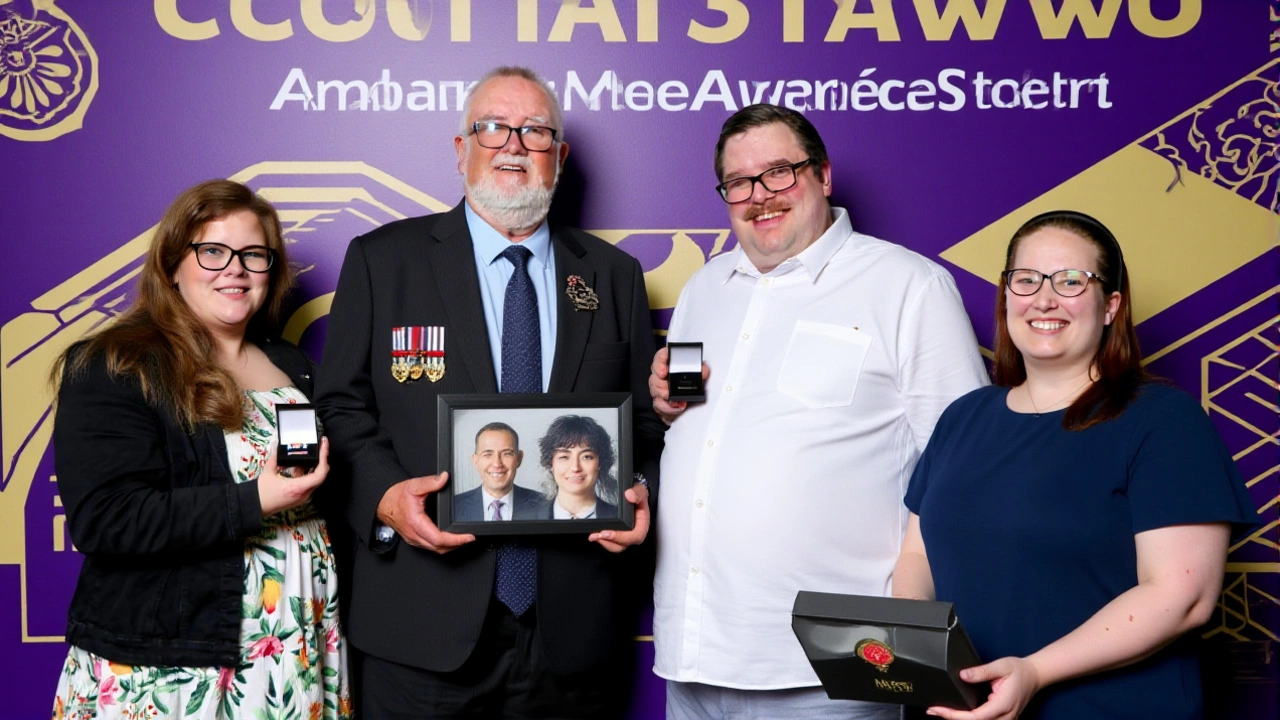On October 24, 2025, Indian television actor Arya Babbar photographed a promotional image for an unnamed sport utility vehicle, later posted by the Instagram account @atmaramgroup. The caption read: "THE SUV FOR REAL MEN This International Men's Day… Drive the ..." — a phrase that leans into performative masculinity, tying a car to cultural ideals of strength and stoicism. The post, verified on November 20, 2025, carried no details about the vehicle’s make, model, price, or manufacturer. Just a man standing. A car. A slogan. And a date that mattered: International Men’s Day, observed annually on November 19.
When Marketing Meets Masculinity
The post didn’t just advertise a vehicle — it weaponized a cultural moment. International Men’s Day, founded in 1999 and observed in over 60 countries, is meant to highlight men’s health, gender equality, and positive male role models. But in commercial hands, it often gets distilled into something simpler: ruggedness, power, control. The SUV, as a symbol, has long been tied to this imagery — larger than life, built to conquer, a metal extension of the male ego. Atmaramgroup, a name that appears nowhere else in public records beyond this single Instagram handle, didn’t explain why this SUV was for "real men." They didn’t need to. The message was already embedded in the visual language of advertising: a man standing tall beside a big, dark vehicle, the sky behind him muted, the focus entirely on presence.
It’s not new. Think of 1980s commercials for pickup trucks with booming voices declaring, "This is what a man drives." But today’s version is quieter. More subtle. Less shout, more stare. And it’s being delivered by someone who’s already known for emotional roles — Arya Babbar, who plays Jagriti, a character often associated with sensitivity and moral complexity on Indian television.
A Name, Two Spellings, One Person
Here’s the twist: the same actor is known elsewhere as Aarya Babbar. In a June 2025 article by Filmibeat, published around Father’s Day, she spoke of her father, Raj Babbar, calling him her "silent teacher." "For me, Father’s Day is a quiet honour to the man who taught me the most important things without ever spelling them out," she said. The quote, tender and reflective, stood in stark contrast to the aggressive branding of the SUV post. Two portrayals. One person. Two dates. Two versions of her name. One spelling with a single ‘a’ in the Instagram post. Another with a double ‘a’ in Filmibeat’s article. Both are real. Both are used by the same individual across different platforms — a linguistic quirk common in Indian names transliterated into English, but one that creates confusion in digital archives.
Who is Raj Babbar? A veteran actor and producer in Hindi cinema and television. A man who raised a daughter who now navigates both emotional storytelling and commercial spectacle. No one in the Instagram post mentioned him. No one needed to. But the connection lingers — the quiet strength of a father, the public performance of a daughter, the unspoken bond between them.

Why This Matters Beyond the Car
This isn’t just about an SUV. It’s about how brands co-opt personal, meaningful days to sell things that have nothing to do with the spirit of the occasion. International Men’s Day was created to encourage men to be better — to talk about mental health, to be vulnerable, to break cycles of silence. Yet here, it’s reduced to a car ad that implies only one kind of man is "real."
Meanwhile, the Filmibeat piece offered something rarer: authenticity. A daughter honoring her father not with a product, but with a memory. No hashtags. No logo. Just words that carried weight. The contrast is deliberate. One is transactional. The other is transformative.
And yet — both are part of the same cultural ecosystem. The same person is being asked to embody two versions of masculinity: the stoic, silent, powerful figure selling an SUV, and the reflective, grateful daughter honoring her father’s quiet influence. Which one is the real Arya? Both. And neither. She’s a woman navigating a system that demands she perform, sell, and still be seen as genuine.

What’s Next for Branding and Masculinity?
Brands will keep using International Men’s Day, Father’s Day, and even World Men’s Health Day to push products. The playbook hasn’t changed: tie emotion to consumption. But audiences are getting smarter. A 2024 Nielsen study found that 68% of Indian consumers under 35 distrust ads that stereotype gender roles. That’s why the backlash to this post — though not yet visible in the source material — is likely coming.
Atmaramgroup didn’t release sales numbers. No audience reach figures. No engagement metrics. That silence speaks volumes. Are they testing the waters? Is this a one-off campaign? Or is this the new normal — where every cultural moment becomes a sales funnel?
For now, the SUV remains unnamed. The car company, undisclosed. The impact, unmeasured. But the question lingers: When did we start measuring a man’s worth by the vehicle he stands beside?
Frequently Asked Questions
Who is Arya Babbar, and why does her name appear spelled two different ways?
Arya Babbar (with a single 'a') is an Indian television actor credited in an Instagram post from October 24, 2025. The same individual is referred to as Aarya Babbar (with a double 'a') in a June 2025 Filmibeat article, where she discusses her father, Raj Babbar. This spelling variation is common in Indian names transliterated into English, and both refer to the same person — a lead actress in the TV show 'Jagriti'. The inconsistency reflects how names are rendered across platforms, not different individuals.
What is Atmaramgroup, and is it a known company?
Atmaramgroup is only documented as an Instagram handle (@atmaramgroup) that posted the SUV promotion. No corporate website, registration details, or public business records were found linking this handle to a verified company. It may be a marketing account operated by a small agency, a dealership, or even a brand’s social media team. The lack of transparency is typical of influencer-style campaigns that prioritize viral reach over brand legitimacy.
Was the SUV ever identified, and is it available for purchase?
No. The Instagram post and related materials provided zero details about the SUV’s make, model, price, or manufacturer. No links, no specifications, no dealership information. This suggests the campaign was designed for brand awareness, not direct sales — likely testing emotional resonance before launching a full campaign. Without further data, the vehicle remains a placeholder for a marketing concept, not a real product.
How does this relate to the broader trend of gendered advertising?
This campaign fits a long-standing pattern of targeting men with ads that equate masculinity with power, control, and stoicism — often through vehicles, tools, or alcohol. But as audiences, especially younger demographics, increasingly reject these stereotypes, such campaigns face growing scrutiny. The irony here is that Arya Babbar, who publicly honors quiet emotional strength in her Father’s Day quote, is now the face of a message that contradicts it. That tension may fuel public debate — and possibly backlash.
